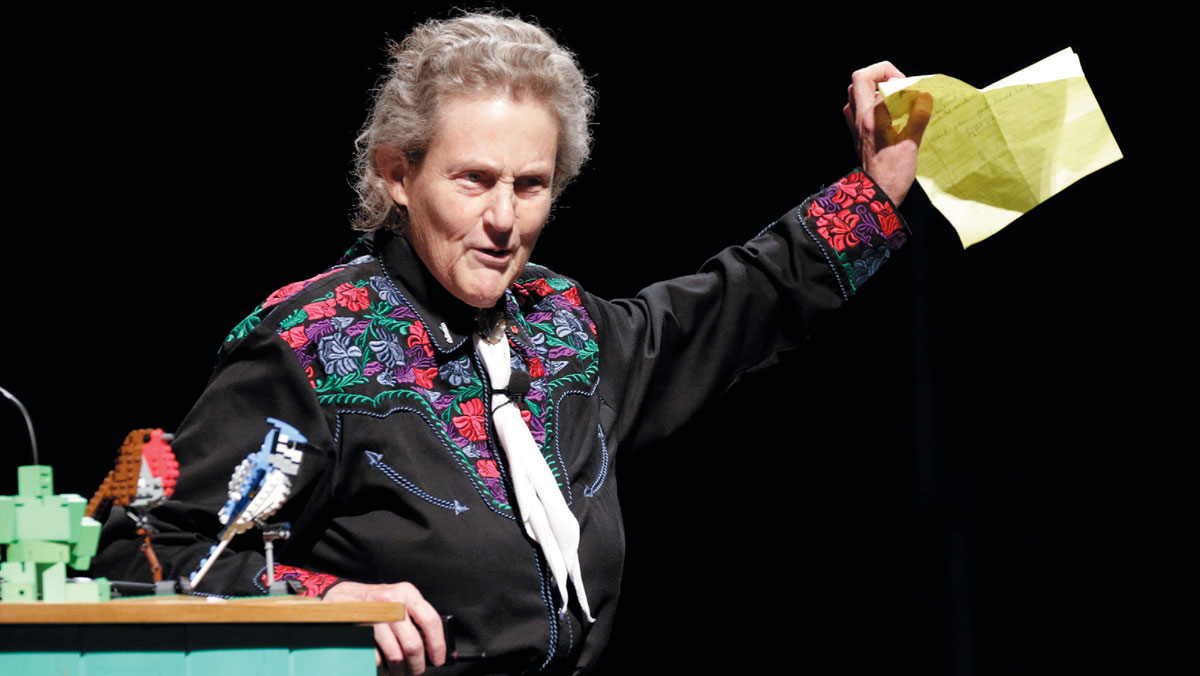Temple Grandin
These days, the average conference is a mandatory work engagement centered around learning “Five Ways To Do X For Your Business” while you sit in a badly lit ballroom eating poorly made food with a bunch of strangers staring at their cell phones. A few conferences stand apart from the rest and offer a world of wonder. The best include the famous SXSW, which has become a music and media mecca, while TED has been crowned king of the genre.
Now, Sarasota hopes to join the royalty with a conference of its own.
PINC. Sarasota, which stands for People, Ideas, Nature, and Creativity, is decidedly an “un”-conference with a searing spotlight on innovation and inspiration. The day holds a cascade of impressive presentations delivered by a superb selection of international speakers, artists, and performers from every imaginable discipline, from environmentalists to world-champion whistlers.
This year, PINC hosted the almost-infamous Temple Grandin, whom Time Magazine designated as a “Hero.” Many are already familiar with her work, as she has revolutionized a good portion of the food industry while also bringing awareness to autism, a condition she herself lives with.
At this year’s PINC, Grandin received a standing ovation for her speech on how we, as a society, are failing to look at things creatively, but are instead conforming to the system’s standards. She credits her autism-influenced outside-the-box thinking for allowing her to see a new perspective on old topics. She urges us, the consumer, to put in the effort to ask the questions and be a part of the answers.
“The ag industry needs to work harder to communicate with the consumer,” she says plainly, “but consumers have to work on looking things up.”
Though she suggests the consumer be involved, she puts most of the onus on the food industry and is pleased with the progress it’s been making. “Management is the key,” she tells me, referring to how all the facets of the food industry can continue to improve. “Large or small, management has to care about doing things right.”
“There are drastic improvements since the ’80s and ’90s,” she continues, “like steam cabinets and hygienic skinning practices, and improvements on animal handling. I’ve been in the business for 40 years and can tell you that the supervision of employees, repairs and maintenance and simple improvements like non-slip flooring and better lighting, have really improved the food industry.”
Currently, her focus is on learning about using grazing animals for meat and crop rotation. “It creates better soil and a bigger variety of crops,” she says. “Switching away from monoculture to integrating grazing cattle for crop rotation improves the entire system. We’re just starting to see more of that, but we’ve got to use them right,” she says. “I’m learning about a lot of new things in the industry right now,” Grandin says, “but I’m focused on crop rotation. That’s really good stuff.”





